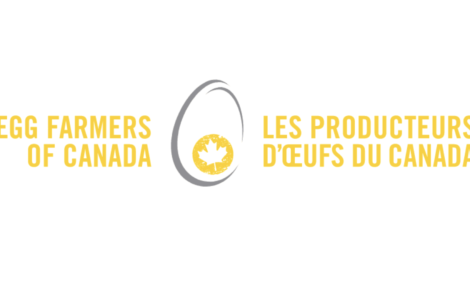



VIV ASIA - Seminar Stresses Importance of Hatching Egg Quality
THAILAND - The importance of hatching egg quality in poultry production was the main message of a seminar organised by Vencomatic today, writes Jackie Linden, senior editor of ThePoultrySite. The event was organised by Vencomatic and held on the day prior to the start of VIV Asia 2011 in Bangkok.'Managing Perfection' was the theme of a technical seminar hosted by Vencomatic today in Bangkok in conjunction with the VIV Asia 2011 trade show which starts tomorrow, 9 March.
The seminar focused on the importance of the quality of hatching eggs in the process of poultry meat production. The organisers promised to present interesting facts on the effect of hygiene of hatching eggs on the performance of broiler chicks, as well as some practical solutions to improve the quality of hatching eggs. This included the latest information on the Company's Veranda system for breeders and the Patio system for broilers.
An introduction to the world poultry meat market was given by Erik Helmink, sales and marketing manager for Vencomatic. A short video highlighted the important role of poultry in feeding the growing world population with ever greater pressure on the global resources of land, water, energy and feed.
In terms of broiler housing trends, Mr Helmink highlighted the growing difficulty in finding skilled labour, the 'knowledge gap' as broiler companies increase in size, the ever-increasing contribution of feed efficiency to the bottom line and the genetic development in broilers, which brings new challenges for breeder management.
Hatching egg quality was the subject of a presentation by Peter Scheurs, senior export manager for Asia & Pacific for Vencomatic. He explained the a newly laid egg can be vulnerable to bacterial contamination if it is laid in unhygienic surroundings, and how the risk is increased if the egg is cracked as the result of rough handling or unsuitable materials.
Manual egg collection is still common but there are good reasons to automate egg collection, he said. As well as the need for plenty of labour to collect the eggs regularly, the fluctuating temperature of an egg that remains in the nest box for a long period of time is known to lead to higher early mortality in the incubator. The Company's Classic Net is a colony nest system where the eggs roll away gently onto the egg belt, whilst the floor tips at night to prevent birds roosting there and to keep the nest box area as clean as possible.
In a field trial, more hatching eggs were collected with the automatic system and more of these eggs hatched as the result of correct setting, point-down, added Mr Scheurs. The design of the house has been built around the birds' natural behaviour, he concluded.
The latest developments in nest systems were described by John Bierens, sales manager for several European countries. Vencomatic's first designs were developed by Cor van der Ven when he founded Vencomatic in 1988. He adapted a turkey breeder housing system for chickens, using a roll-away nest, which allowed the eggs to roll gently onto the egg belt, while the nest was kept clean with the tilting floor.
Mr Bierens went on the explain the features of the latest version, the Grando Nest, which has a larger nest to accommodate larger breeders and is easier to clean. The mat has been modified to minimise any possible damage to the eggs as well as the number of contact points for possible bacterial contamination. The nest can also be adapted for different climatic conditions. The egg collection system can also include belts to connect together several houses for egg packing as well as a container loader, electronic grader and ultra-violet disinfection using equipment from the Venco Group.
Harry Luimes, sales manager for Scandinavia and Germany, explained the latest developments in Vencomatic's Veranda system for breeders. The great majority of the breeders are kept in floor systems and use natural fertilisation, he said, adding that this presents a number of challenges in terms of both male and female management and discouraging floor eggs, which require skilled labour. Up to four tiers can be fitted into a house, separated by manure belts.
Vencomatic's solution is the Veranda, a colony cage system for hatching egg production using natural fertilisation. The laying nest is key to perfect egg quality, he said, as it offers a hygienic nest floor, the nest is closed at night to prevent birds sleeping in the nest boxes, and the eggs roll onto a central collection belt.
The latest version, the Veranda 2010, incorporates a scratching area over the nest boxes in order to encourage the birds' natural behaviour, leading to better welfare, and it also increases the area available to the birds, said Mr Luimes. He added that the company testing this system for high temperatures in a field trial in an open-sided house in India.
The Patio system for broilers gives the birds a different start in life from a hatcher, explained Eik Hemink in the final presentation on the Vencomatic's latest system for broiler rearing. Hatching eggs, in trays, are placed within the multi-tier system when the embryos are 18 days of age. There, the chicks hatch and can be raised to market weight.
The field results so far have been very good, he explained: 70 to 90g more weight at processing, lower mortality, fewer dead-on-arrivals at the processing plant and fewer birds downgraded – all without any antibiotics, he stressed. Furthermore, the good litter conditions have resulted in clean, healthy feet and energy use is much lower than for a conventional broiler house, he said.
Mr Helmink added that the first projects have been started in Russia, from which it has emerged that local training of operators is very important to the success of the system. A second project is due to start this year.
In answer to questions about consumers' views, Mr Helmink stated that welfare groups accept that the well-being of the broilers is not compromised as he stressed: "Patio is not a cage at broiler level." Furthermore, it has received a positive response from retailers, who welcome the lower carbon footprint of the Patio as well as its high hygiene, without the need for antibiotics.
Further Reading
| - | You can find out more from Vencomatic by clicking here. |











